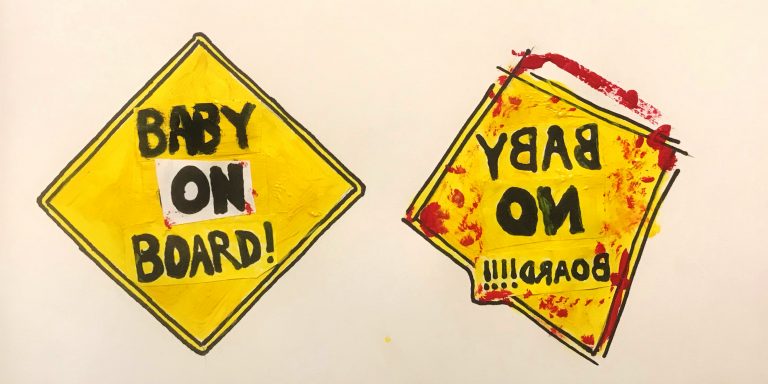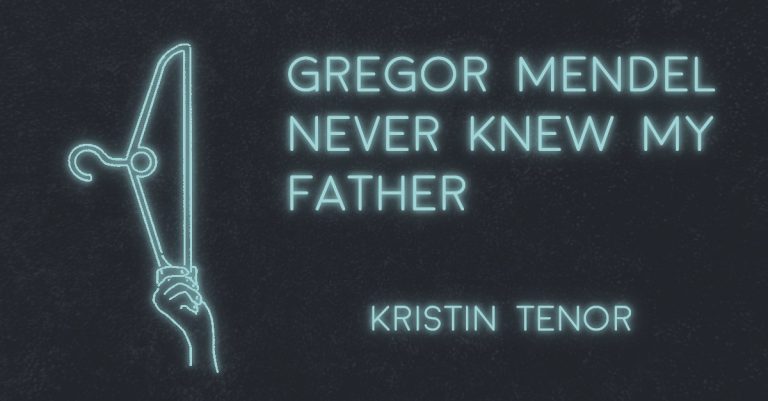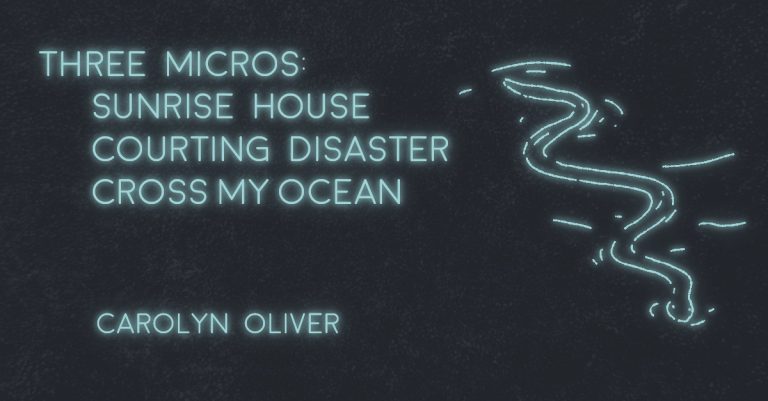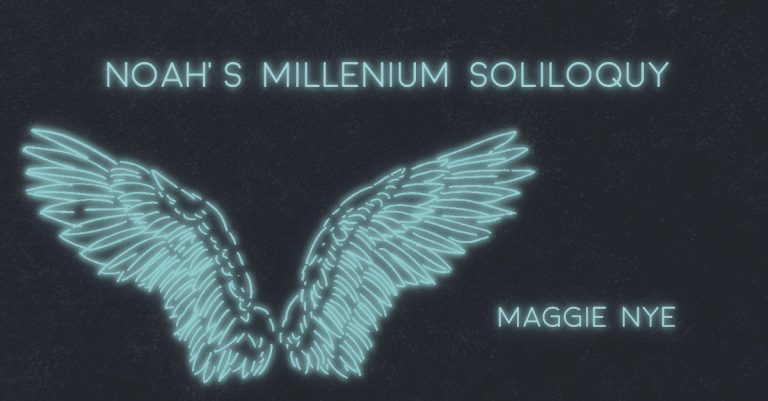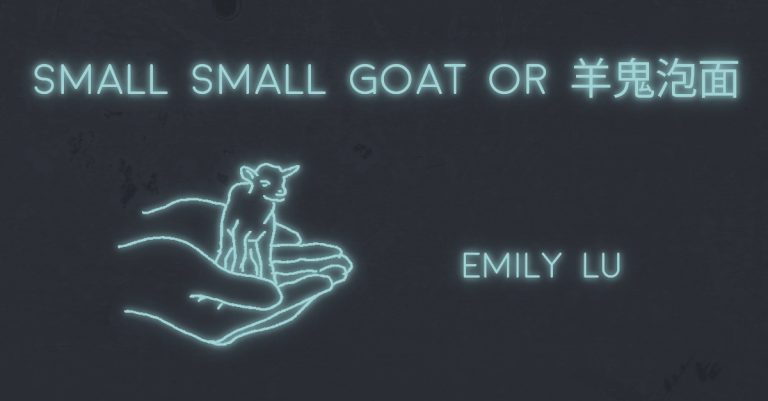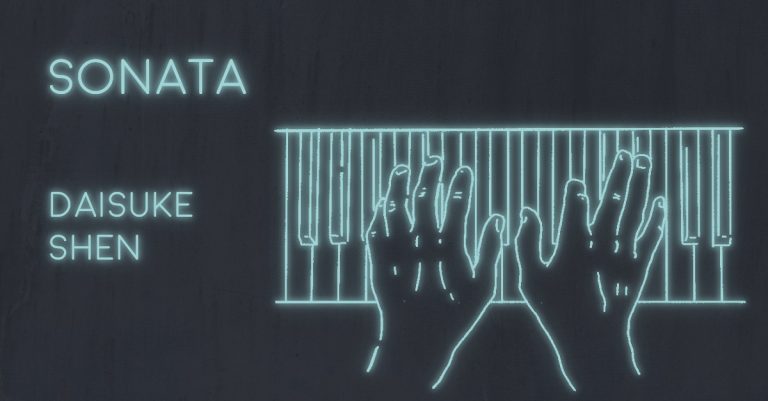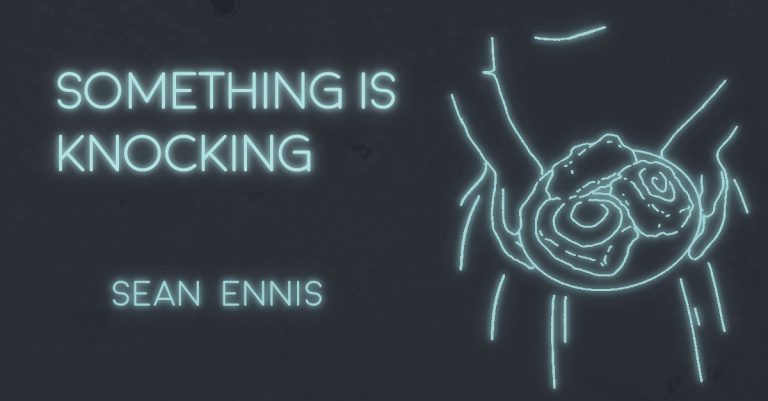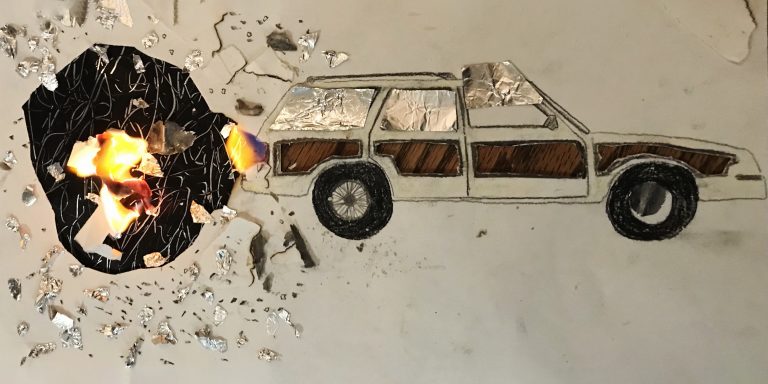
DIVORCED by Amy Barnes
A car the size of a house rams our house that’s the size of a house. Thunder from a 1986 Thunderbird shakes me out of my canopy bed to the window to the street. It’s the moment I know my mother is a liar, a big one. She lays there lazy for too long or maybe not long enough, in her satin-sheeted bed and satin-matching lingerie with a man who isn’t her husband or my father. Her lipstick is smeared and our house is too, a brick mouth opened up on one side. When the red lights encircle our house

